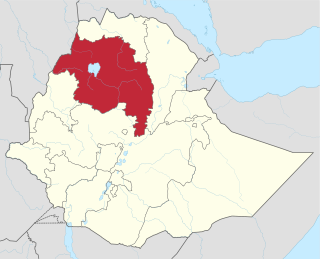Serendipity means an unplanned, fortunate discovery. Serendipity is a common occurrence throughout the history of product invention and scientific discovery. Serendipity is also seen as a potential design principle for online activities that would present a wide array of information and viewpoints, rather than just re-enforcing a user's opinion.

The erect-crested penguin is a penguin known only from New Zealand, where it breeds on the Bounty and Antipodes Islands, although previously also known from Campbell Island. It has black upper parts, white underparts and a yellow eye stripe and crest. It spends the winter at sea and little is known about its biology and breeding habits. Populations have declined during the last few decades of the twentieth century, and the International Union for Conservation of Nature has listed it as being "endangered".

The Acrochordidae, commonly known as wart snakes, Java wart snakes, file snakes, elephant trunk snakes, or dogface snakes, are a monogeneric family created for the genus Acrochordus. This is a group of primitive aquatic snakes found in Australia and tropical Asia. Currently, 3 species are recognised.

Insh Marshes are an area of floodplain of the River Spey between Kingussie and Kincraig in Badenoch and Strathspey, Highland, Scotland. The marshes are said to be one of the most important wetlands in Europe. They lie at altitude of approximately 240 to 220 m above sea level, and form one of the largest areas of floodplain mire and fen vegetation in Scotland.

Amhara Region is one of the nine ethnic divisions of Ethiopia, containing the homeland of the Amhara people. Previously known as "Region 3", its capital is Bahir Dar. Ethiopia's largest inland body of water, Lake Tana, which is the source of the Blue Nile river, is located within Amhara. The region also contains the Semien Mountains National Park, which includes Ras Dashan, the highest point in Ethiopia. Amhara is bordered by the state of Sudan to the west and northwest, and in other directions by other regions of Ethiopia: Tigray to the north, Afar to the east, Benishangul-Gumuz to the west and southwest, and Oromia to the south.

Heterodonta is a taxonomic subclass of saltwater clams, marine bivalve molluscs. This subclass includes the edible clams, the cockles and the Venus clams.

The Catalogue of Life is an online database that provides the world’s most comprehensive and authoritative index of known species of animals, plants, fungi and micro-organisms. It was created in 2001 as a partnership between the global Species 2000 and the American Integrated Taxonomic Information System. The Catalogue interface is available in twelve languages and is used by research scientists, citizen scientists, educators, and policy makers. The Catalogue is also used by the Biodiversity Heritage Library, the Barcode of Life Data System, Encyclopedia of Life, and the Global Biodiversity Information Facility. The Catalogue currently compiles data from 168 peer-reviewed taxonomic databases, that are maintained by specialist institutions around the world. As of 2019, the Catalogue lists 1,837,565 of the world's 2.2m extant species known to taxonomists on the planet at present time.

The Encyclopedia of Life (EOL) is a free, online collaborative encyclopedia intended to document all of the 1.9 million living species known to science. It is compiled from existing databases and from contributions by experts and non-experts throughout the world. It aims to build one "infinitely expandable" page for each species, including video, sound, images, graphics, as well as text. In addition, the Encyclopedia incorporates content from the Biodiversity Heritage Library, which digitizes millions of pages of printed literature from the world's major natural history libraries. The project was initially backed by a US$50 million funding commitment, led by the MacArthur Foundation and the Sloan Foundation, who provided US$20 million and US$5 million, respectively. The additional US$25 million came from five cornerstone institutions—the Field Museum, Harvard University, the Marine Biological Laboratory, the Missouri Botanical Garden, and the Smithsonian Institution. The project was initially led by Jim Edwards and the development team by David Patterson. Today, participating institutions and individual donors continue to support EOL through financial contributions.

The Rhyparochromidae are a large family of true bugs, many of which are commonly referred to as seed bugs. The family includes two subfamilies, more than 420 genera, and over 2,100 described species.
FindArticles was a website which provided access to articles previously published in over 3,000 magazines, newspapers, journals, business reports and other sources. The site offered free and paid content through the HighBeam Research database. In 2007, FindArticles accessed over 11 million resource articles, going back to 1998.

Mountain View No. 318 is a rural municipality in the Canadian province of Saskatchewan. The municipality is located in Census Division 12 which is a part of SARM Division 6. The seat of the municipality is located in the hamlet of Herschel. The RM is also home to Ancient Echoes Interpretive Centre.

Neoclytus is a genus of beetles in the family Cerambycidae, containing the following species:
Eulichadidae is a family of forest stream beetles in the order Coleoptera. There are about 5 genera and more than 40 described species in Eulichadidae.

Rhipiceridae is a family of cedar beetles, also known as cicada parasite beetles, in the order Coleoptera. There are about 7 genera and 20 described species in Rhipiceridae.
Berginus is a genus of hairy fungus beetles in the family Mycetophagidae. There are at least three described species in Berginus.
Decadiomus is a genus of lady beetles in the family Coccinellidae. There are about six described species in Decadiomus. They are found primarily in the Caribbean, but Decadiomus bahamicus is also found in southern Florida.
Margaridisa is a genus of flea beetles in the family Chrysomelidae. There are at least four described species in Margaridisa.

The Interim Register of Marine and Nonmarine Genera (IRMNG) is a taxonomic database containing the scientific names of the genus, species, and higher ranks of many plants, animals and other kingdoms, both living and extinct, within a standardized taxonomic hierarchy, with associated machine-readable information on habitat and extant/fossil status for the majority of entries. The database aspires to provide complete coverage of both accepted and unaccepted genus names across all kingdoms, with a subset only of species names included as a lower priority. In its March 2019 release, IRMNG contained 490,095 genus names, of which 236,514 were listed as "accepted", 120,194 "unaccepted", 7,391 of "other" status i.e. interim unpublished, nomen dubium, nomen nudum, taxon inquirendum or temporary name, and 125,996 as "uncertain". The data originate from a range of print, online and database sources, and are reorganised into a common data structure to support a variety of online queries, generation of individual taxon pages, and bulk data supply to other biodiversity informatics projects. IRMNG content can be queried and displayed freely via the web, and download files of the data down to the taxonomic rank of genus as at specific dates are available in the Darwin Core Archive (DwC-A) format. The data include homonyms, including both available and selected unavailable names.












